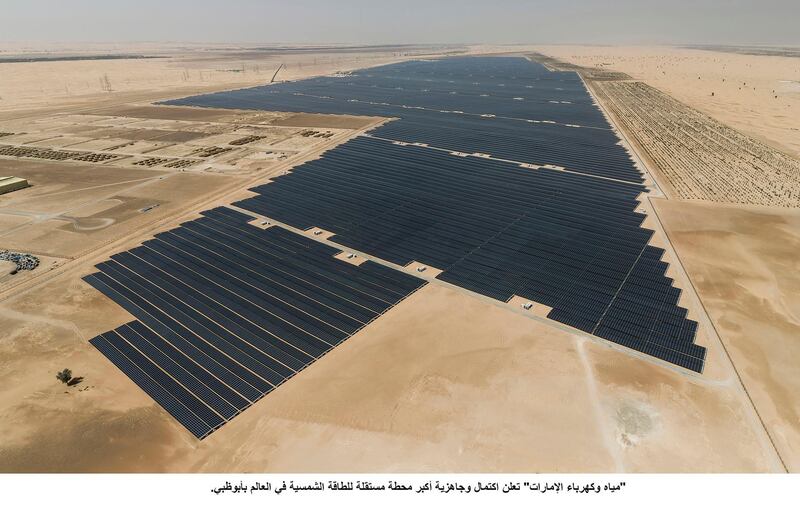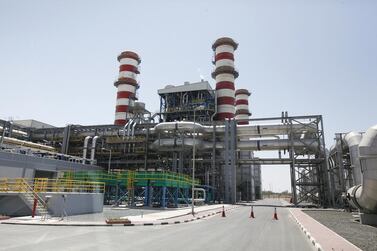Emirates Water and Electricity Company is targeting a 50 per cent reduction in carbon dioxide emissions from its power businesses by 2025. The utilities company also plans to increase investment in desalination projects with less energy impact to meet growing demand.
The recommendations, approved by the Abu Dhabi Department of Energy, set forecasts for water and electricity demand for six years until 2027, in addition to suggestions for an increase in future production capacity.
"Our strategic decisions to date, and strategic recommendations for the future, show that increasing investments in renewable energy projects will allow us to make a very significant impact in changing the energy sector and prioritising renewable production technologies," said Ewec chief executive Othman Al Ali.
Investments in solar photovoltaic projects, nuclear energy and reverse osmosis-based desalination, will lower emissions to 20 million tonnes by 2025 from over 40 million tonnes last year.
Ewec, which is part of ADQ holding company has been gradually lowering its carbon impact. The company's average carbon dioxide intensity from power generation fell 15 per cent to 350 grams per kilowatt-hour in 2018 from 412 grams/kWh in 2015 due to the commissioning of new energy-efficient plants.
The plan also recommends increasing Ewec's reverse osmosis desalination capacity.
Reverse osmosis is a membrane-based method of desalination that uses less energy compared with the thermal process used to produce fresh water.
Investments to develop 170 million gallons per day of new membrane-based desalination capacity will be needed to meet existing demand, according to the forecasts.
"Increased investment in RO projects means we can lead the region in decoupling water and electricity generation, using significantly less energy-intensive technology to produce water, reduce carbon emissions, and reduce costs," said Bruce Smith, forecasting and planning director at Ewec.
In February, Ewec invited utility developers to submit bids for a planned 150 million gallon per day desalination plant in Abu Dhabi as part of its efforts to enhance the emirate's clean and sustainable water supply.
The Mirfa 2 reverse osmosis plant will be developed as an independent water project.
The scheme will be located adjacent to the existing Mirfa desalination plant, which began operations in 2017 and accounts for nearly 10 per cent of Abu Dhabi's water supply. The desalination plants are located 110 kilometres west of Abu Dhabi city.








